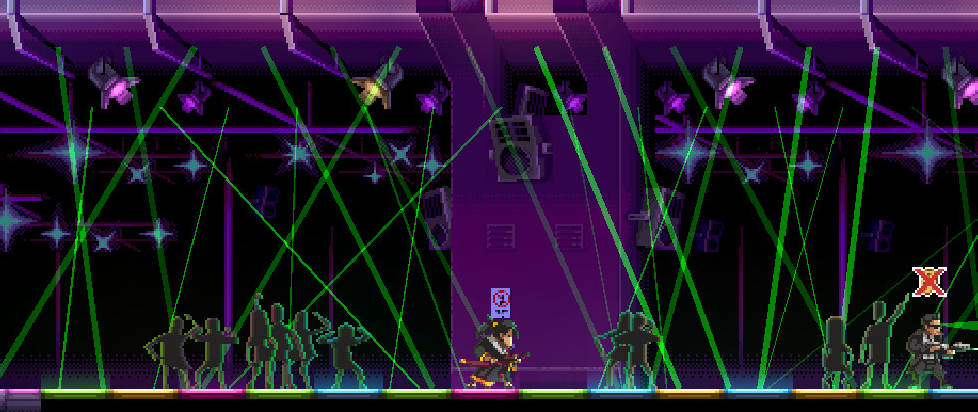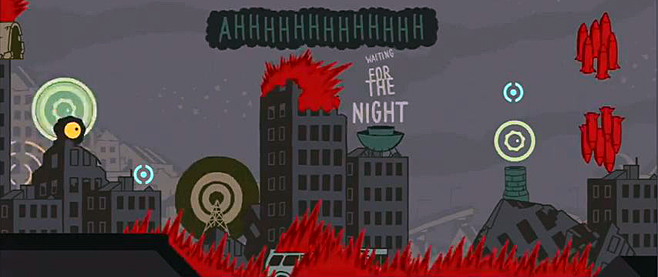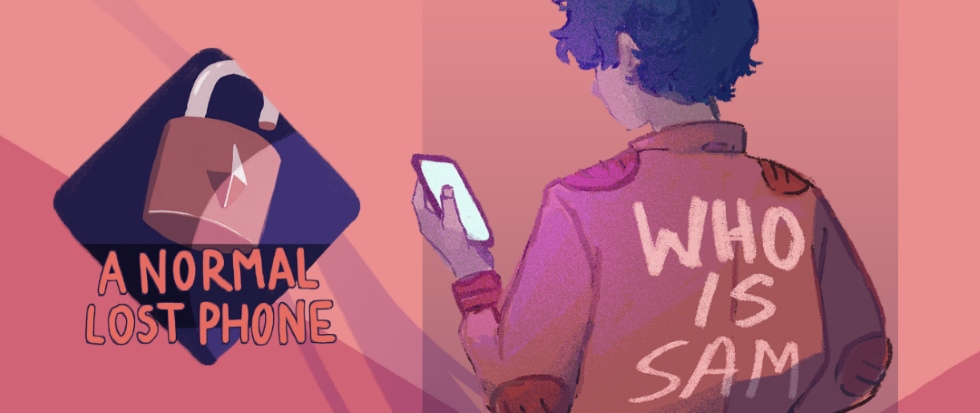
Katana ZERO Offers Only Excuses
Hotline Miami lit the gaming world on fire with its electric take on ultra-violence. A top-down shooter, you are tasked with clearing out a screen full of enemies, and you do that in the most gruesome ways possible. Look deeper, though, and the game has something cognizant to say about the nature of violence in games. Fast forward to 2019, where there have been plenty of imitators on the market since then who only grasped the surface level of Hotline Miami without looking deeper. Katana ZERO stands out from the bunch, as it changes the perspective to a side-scrolling one with an emphasis on melee combat and a more fleshed-out story universe. But the most striking thing about Katana ZERO isn’t how it’s similar to Hotline Miami, but rather how much it goes out of its way to make excuses for your murder spree in a way that Hotline Miami absolutely would never allow.
On paper, Katana ZERO is a killer idea. Moving the viewpoint to a side-scrolling one is an interesting twist to the whole murder puzzle genre that Hotline helped popularize, which integrates some light platforming and gives you a different point of view to gain mastery of. Not to mention that slicing through enemies, deflecting their bullets, and using the sundry items strewn throughout the levels just feels good. It stumbles when it makes you rely on stealth, but for the most part, killing in this game feels amazing in the same way that it does in Hotline Miami – perhaps even more so here since you have a better view of the carnage.
But that’s exactly the problem. Hotline Miami tempted you into reveling in your bloody spree in many of the same ways, but with the slight difference that it made you feel just removed enough from the mayhem that you could have a very video gamey good time with everything. The top-down viewpoint does a lot of the heavy lifting here, letting you feel separate from the gory remains of your grim work due to the low-fidelity graphics. But making you feel removed is the point, and Hotline Miami’s undercurrent is all about showing players how desensitized we’ve become to ultraviolence thanks to this removal of the self, this distance that lets us enjoy the bloodshed. As you play, it becomes increasingly clear that the game will not let you off the hook for committing to these acts of violence. The entire premise is that you’re murdering people at different locations because a voice on your answering machine tells you to. Of course there’s going to be consequences.
Katana ZERO, meanwhile, can’t stop offering you justification for your butchery. The conceit of the game is that you are a super soldier on a time-altering drug dispatched to a Vietnam-like war to kill pretty much anyone in your way, including children. Except you don’t know this at first because your character can’t remember details about his past – excuse. He kills people in order to get more of the drug to sustain him from his psychologist – excuse. He can’t be a bad guy, though, because he makes friends with a neighbor girl and cares for her when her family supposedly get killed – absolution. When it turns out you uncover you’re being used the entire time, the game ends with you brutally bashing the skull of your psychologist in – but he had it coming. The excuses really are just non-stop, with the designers holding your hand almost as if to say, “It’s okay you’re enjoying this. Keep killing, it’s fine.”
Not that every game that channels Hotline Miami must share its values. But it all feels like such a cop out that Katana ZERO has nothing meaningful to say about anything. Your avatar’s characterization isn’t at all interesting or surprising during everything that happens to him. He’s obedient to his “employer” while making a couple of side trips for some revelations of his past, and then finally ends up motivated by revenge, offing his employer and vowing to find whoever took the kid that you’ve been doting on at the end of the game. The story wants to be something more, as it hints that there’s more to the Katana ZERO universe that we have yet to see. But the story and setting are a mere veneer transplanted on top of how fun it is to kill people in the game. And that’s not even considering how it bungles a possible statement on PTSD in the military by waving it away with its made-up drug. It’s just kind of a shame how many opportunities Katana ZERO misses.
As much of a landmark release as it was, Hotline Miami had bold things to say about the state of the industry and its reliance on feeding us ultraviolence and absolving players so they can enjoy it without any of that pesky introspection to get in the way. Katana ZERO aims to tell a more coherent, less trippy story in a universe bigger than what we see in the game. But there’s no message behind its content, no conviction behind the bloodshed. Katana ZERO is just a game where you enjoy slicing up bad guys, and let’s be very clear: It’s extremely enjoyable. But conjuring the memory of Hotline Miami just reveals how hollow the game’s themes and narrative beats really are. There’s just nothing there but excuses for you to keep killing for the sake of it.





